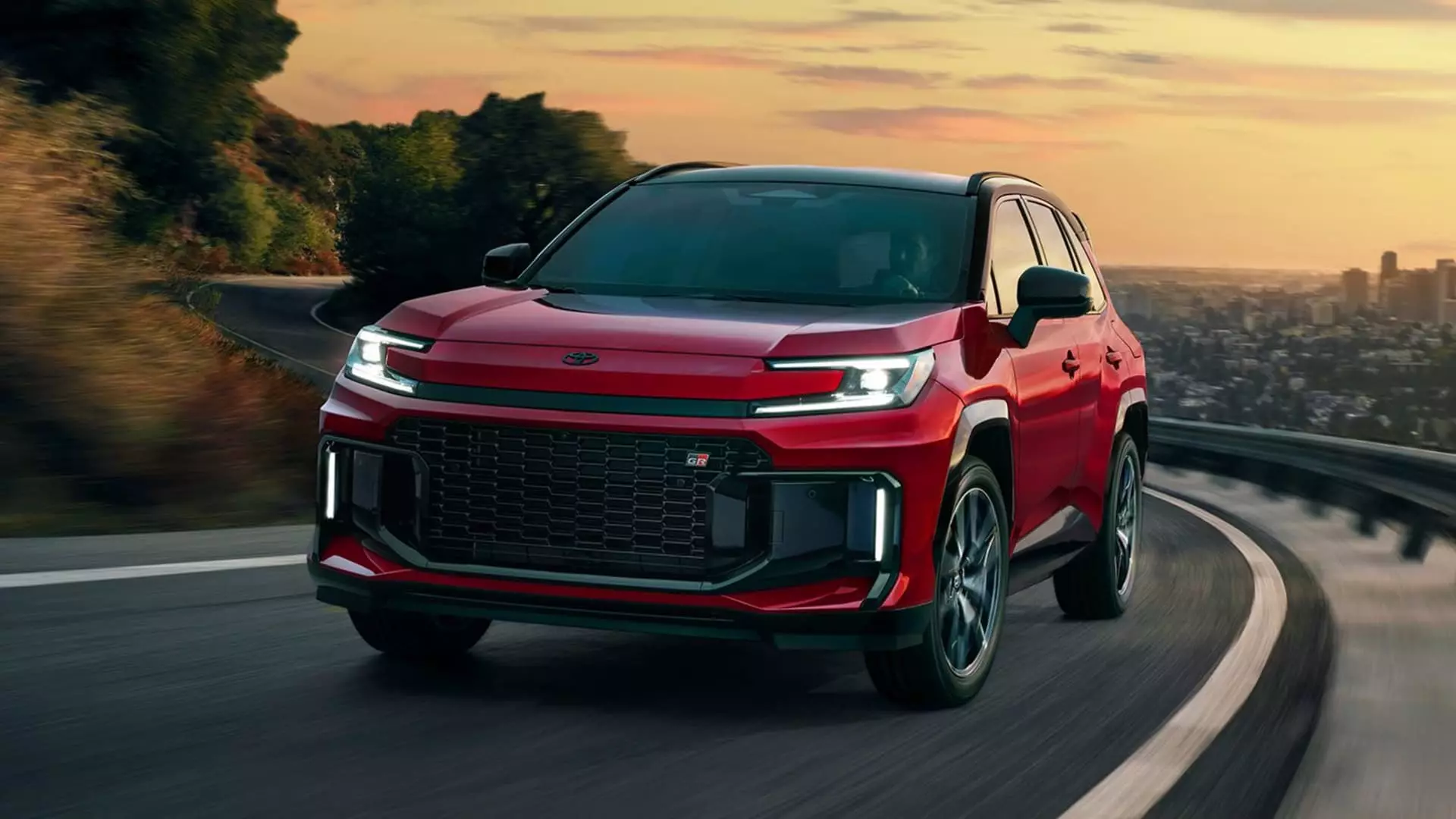In a groundbreaking shift, Toyota announced that its best-selling SUV, the RAV4, will now exclusively feature hybrid variants, marking a significant departure from traditional gasoline engines in the vehicle lineup. This bold decision reflects not only a changing market landscape but also a deeper realization that hybrid technology is increasingly becoming a consumer favorite and regulatory necessity. Toyota, which pioneered hybrid technology with the introduction of the Prius, is opting for a strategy that positions the RAV4 as a leader in eco-friendly driving while catering to the growing demand for efficiency and performance.
The 2026 Toyota RAV4 will come equipped with a 2.5-liter four-cylinder engine bolstered by hybrid components, marrying the power of traditional combustion engines with the advantages of electric technology. This redesign not only enhances fuel efficiency but also aligns with the current push towards greener alternatives amidst slow adoption rates of fully electric vehicles. It’s a testament to Toyota’s foresight in recognizing that hybrids may bridge the gap between consumers’ expectations and environmental responsibilities.
The Rise of Hybrid Demand
Supporting evidence for Toyota’s strategic pivot lies in their sales data. In 2024, electric and hybrid vehicles accounted for an impressive 20% of new car sales in the United States, a significant milestone for an industry wrestling with the complexities of emission regulations and consumer preferences. Toyota’s hybrid models alone contributed a substantial portion of the 2.3 million units sold domestically, a clear indicator of shifting consumer priorities towards vehicles that offer a blend of functionalities.
David Christ, the head of Toyota’s North American division, emphasized the consumer preference for hybrid models, pointing out that RAV4 hybrids constituted a remarkable 44% of sales last year. Such statistics prove that customers not only appreciate hybrids but are actively choosing them over traditional gas models. The fact that demand is driving this decision allows us to observe a crucial paradigm shift in the automotive industry, as consumer voices become pivotal in shaping the products manufacturers offer.
Navigating Regulatory Landscapes
The automotive sector is undergoing unprecedented scrutiny regarding fuel economy and emissions, and companies like Toyota are under immense pressure to evolve quickly. By focusing solely on hybrids for the RAV4, Toyota is sidestepping potential pitfalls associated with regulatory compliance for gas engines. The company is not just adapting; it is setting the stage for sustainable automotive solutions that may serve as an example for competitors who are pondering their next move.
Despite the push for full electric vehicles, hybrids have proven to be a viable alternative, providing a fluid transition for consumers wary of completely abandoning traditional engines just yet. By maintaining the two-pronged approach of hybrids and plug-in hybrids, Toyota is effectively reinforcing its commitment to environmental sustainability without alienating consumers who appreciate the convenience of combustion engines.
Challenges and Opportunities Ahead
While Toyota’s strategy seems promising, the company is still subject to external factors that could affect its plans. The ongoing tariffs imposed by the Trump administration introduce an element of unpredictability into the production chain, raising questions about the viability of maintaining competitive pricing for consumers. It’s an unfortunate reality that U.S. manufacturers have to grapple with, but it also opens the door for Toyota to potentially invest in local production. Expanding production in the U.S. could alleviate some of the cost impacts from tariffs and further secure the RAV4’s place in the market.
Toyota’s commitment to elevating local production resonates with the current emphasis on domestic manufacturing, which could be a significant selling point as consumers increasingly factor ethical considerations into their purchasing decisions. Furthermore, this could cushion the company from logistical complications that have arisen during economic disruptions.
The Future of Electric Mobility
As Toyota introduces a hybrid-only RAV4, they are not merely responding to market demands but are also taking a stance that challenges the electric vehicle (EV) race that many manufacturers have intensely embraced. This unique position allows Toyota to carve out a niche that appeals to consumers who consider both sustainability and practicality. As the auto industry navigates rapidly evolving technologies and buyer preferences, the RAV4’s hybrid exclusivity may well serve as an important case study in how to effectively meld consumer desires with the pressing need for environmental responsibility.
The future remains uncertain, but what is becoming clear is that hybrid vehicles will not fade quietly into the background. Instead, they may emerge as a powerful solution that meets both regulatory demands and consumer expectations. Through strategic innovations and a commitment to meeting customers where they are, Toyota stands to redefine success in the automotive industry while also promoting sustainable practices that can shape the future of mobility.

